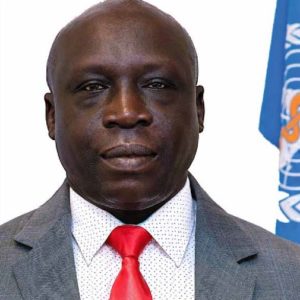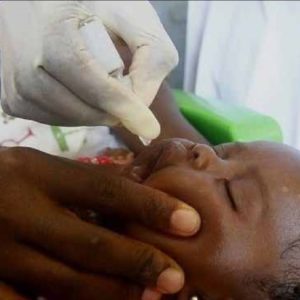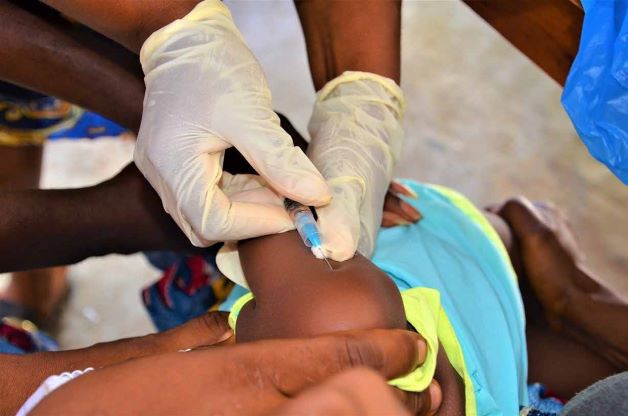In its 2021/2022 Annual Report, the World Health Organization (WHO) has highlighted some improvements made in Liberia’s healthcare delivery system, but has also underscored some lapses, including, “urgent need to improve referral mechanisms and oxygen availability to address health emergencies.”
The report titled, “Improving health and wellbeing amidst COVID-19 in Liberia”, said that “the ongoing COVID-19 outbreak negatively impacted on the health systems and continuity of essential health services resulting in competing priorities in the health sector.”
Writing the foreword of the report, Dr. Clement Peter Lasuba Lugala, WHO Representative for Liberia said:
“The impact of WHO work and results achieved in 2021 were possible because of the strong collaboration and very good working environment with the Government of Liberia, guidance, technical and financial support from WHO Afro and HQ as well as financial support from development partners. The contributions from the WHO staff have been instrumental. Despite health system challenges and interruptions of service delivery from COVID-19, the work of WHO Liberia is contributing to keeping Liberia safe from public health threats, increasing access to universal health coverage and promoting healthier lives.”

Dr. Clement Peter Lasuba Lugala WHO Rep. in Liberia
Key challenges
The report points out a number of key challenges faced by WHO, the Ministry of Health and other partners.
One of them is having to re-prioritize and repurpose resources to meet the planned targets in the biennial work plan. And the others are cited below:
- Despite all the gains made by Government and partners in ensuring the availability and access of COVID-19 vaccines, availability of vaccine safety information, low public uptake (vaccine hesitancy) of the vaccine still exits.
iii. Mobile money payment challenges especially in the mismatching of phone numbers, names and limited wallet space is leading to delays in payments. This is being minimized with prior verification of numbers and constant follow ups with payees before payment is done. Although sometimes this still challenge still persists due to very high volumes of payees.
- Inadequate funding for implementation of Community Based Surveillance across the country leading to a low rate of community case detection (43%) for COVID-19 and other priority diseases in the country as compared to the national target of 80%.
- Inadequate first-line supportive supervision and weak coordination at the subnational level (county, District, Health facility and ommunity) leading to persistent zero reporting of priority diseases, inconsistency, poor data quality and misdiagnosis of IDSR priority diseases.
- Poor attitude, lack of commitment and accountability for implementation of IDSR guidelines.
vii. Budget constraints to implement critical WHO technical support for operations including salaries to maintain the field presence remain a challenge leading to the closure of some field offices and frequent overlapping in program activities by the few available field staff.
viii. Misinformation and dis-information about the COVID-19 vaccine impacted the uptake of nOPV2 thereby leading to vaccine hesitancy and/or refusal. This is being mitigated going forward through the employment of communication officer.
- Limited human and financial resources to effectively implement biennial planned activities and adequately provide technical support to the Ministry of Health and the National Programs.
The health facility density ratio of Liberia is 2.1 per 10,000 people, which is encouraging based on the WHO threshold of 2 while the core health worker’s density is 12.8 per 10,000 populations which is nearly a quarter of WHO recommendation (44.5 per 10,000 population).
HIV prevalence among adults aged 15-49 is 2.1% (LDHS, TB incidence is 510 per 100,000 (2019 WHO country profile), and Malaria prevalence has declined from 66% in 2005 to 28% in 2021.
For Maternal and Child Health, only 69.2% of children under 1 year received DPT3 and Penta-3 vaccination, while 70% of pregnant mothers received IPT2. Up to 87% of pregnant mothers attended four antenatal care (ANC4) visits, skilled birth attendance is 84%, and institutional delivery is 80%.

Up to 3% of children under 5 years are reported to have chronic malnutrition and 45% of pregnant mothers are reported to have varying degrees of anemia (LDHS 2019-2020). Liberia is the 1st Country in West Africa to introduce nOPV2 vaccine and TCV.
A total of 853,279 children were vaccinated during the first round and 978,333 were vaccinated during the second round of nOPV2 vaccination campaign all aged 0-59 months were vaccinated against poliomyelitis in March and May 2021. A total of 1,524,209 children aged 9 months –
Recommendations
The report makes a number of recommendations to Support and facilitate the implementation and monitoring of the EPHS II, National Standard Treatment Guidelines at sub national levels including community level.
- Adapt the Primary Health Care framework and model and improve the generation, dissemination and use of strategic information for evidence-based decision making and planning at all levels.
- Support the implementation of selective health financing and health workforce reforms.
- Support supply chain management and diagnostic capacities to enhance antimicrobial stewardship programing including Healthcare Associated Infections (HAI) and Anti-Microbial Resistance Monitoring (AMR) surveillance systems.
- Routine programmatic supportive supervision and mentorship to frontline health workers and surveillance officers is required in promoting quality of health care, data quality, preparedness, robust disease surveillance, quality outbreaks response and preventive interventions.
- WHO should continue to provide technical guidance and support to MOH and partners at county level in areas of immunization and vaccine preventable diseases in outbreaks and responses.
- Mobilize additional resources to support MOH and other partners’ efforts at county level to deliver essential and life-saving interventions to the population, including vulnerable and hard to reach populations. trengthen programmatic, technical, and operational capacities at sub-national levels to improve program implementation, management and increase access to quality essential health services.
- Government and partners to ensure health facilities have appropriate physical environment with adequate water, sanitation and energy supplies and sources.
- The MOH to make available essential RMNCAH commodities and supplies for routine maternal and newborn care and the management of complications.
- MOH and partners to ensure Adolescentsfriendly health service provision at service delivery points.
- Urgent need to improve referral mechanisms and oxygen availability to address health emergencies.
- Liberia has the drive and capacity to meet up with the global COVID-19 vaccination targets, however strong ownership by senior national stakeholders and strict mandates should be in-place to ensure the public is vaccinated.

